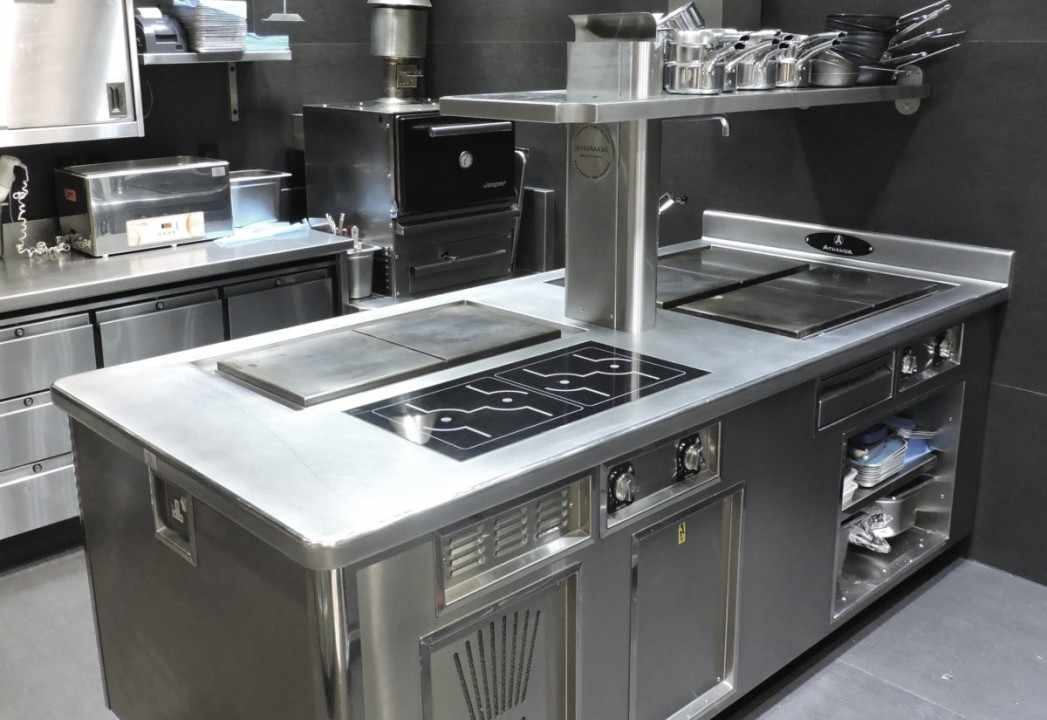
Introduction
AceQuip, a leading player in the Africa Commercial Cooking Equipment (CCE) Market, has significantly impacted the commercial kitchen industry with its robust product offerings, strategic initiatives, and innovative solutions. As demand for commercial cooking equipment rises across various sectors like hospitality, foodservice, and large-scale food production, AceQuip’s position is strengthened by its ability to adapt to market trends and embrace technological advancements.
AceQuip's Strategy for Market Leadership
AceQuip’s strategy centers on customer satisfaction, product innovation, and expanding its footprint in the African market. One of the key elements of AceQuip’s strategy is a focus on providing high-quality, durable cooking equipment that meets the rigorous demands of commercial kitchens. This aligns with the growing need for efficient, energy-saving, and durable equipment in restaurants, hotels, and catering businesses across Africa.
AceQuip’s strategy also includes localization, recognizing that different regions within Africa have unique preferences and requirements. By tailoring their products to suit regional tastes, they are able to provide highly relevant and specialized equipment that appeals to a wide variety of businesses. This localized approach is vital as it helps AceQuip stay competitive in a diverse and rapidly evolving market.
Emerging Innovations in Commercial Cooking Equipment
AceQuip has consistently been at the forefront of innovation, incorporating cutting-edge technology into its cooking equipment to meet the growing demands of the African market. The company’s emphasis on energy-efficient equipment has led to the development of products that reduce energy consumption and operating costs for commercial kitchens.
One significant innovation has been the introduction of smart kitchen appliances, such as connected ovens, grills, and fryers, which can be monitored and controlled remotely. This innovation not only helps businesses reduce downtime but also enhances operational efficiency by enabling better inventory and kitchen management.
Additionally, AceQuip has focused on integrating automated cooking solutions. With automation gaining traction in commercial kitchens, their range of self-cleaning equipment, robotic cooking systems, and conveyor belt cooking units are helping foodservice businesses meet the demand for higher output while reducing labor costs and ensuring consistent food quality.
Developments in the Africa Commercial Cooking Equipment Market
The African Commercial Cooking Equipment market is experiencing a transformation, largely driven by increased urbanization, rising disposable incomes, and a growing middle class. These factors contribute to the expansion of restaurants, hotels, and catering businesses across the continent. As these businesses demand more sophisticated and reliable cooking equipment, AceQuip has responded with new product lines that cater to these needs.
AceQuip has made substantial investments in research and development to ensure that its products meet both the functional needs and the aesthetic preferences of African businesses. The company has also committed to sustainable practices, integrating eco-friendly materials into its designs and focusing on minimizing environmental impact during production.
Another key development is AceQuip’s expansion of its distribution and service networks across Africa. By establishing a stronger presence in key markets such as Nigeria, South Africa, and Kenya, AceQuip has enhanced its ability to support customers with fast delivery times, installation services, and after-sales support.
Challenges and Opportunities in the Africa CCE Market
While the Africa CCE market presents immense opportunities, it is not without challenges. The lack of consistent power supply in many regions presents a challenge for the operation of energy-intensive commercial cooking equipment. However, AceQuip has addressed this by offering energy-efficient equipment designed to perform well even in areas with power fluctuations.
Moreover, the relatively high initial investment required for quality commercial kitchen equipment remains a barrier for some businesses in Africa. To overcome this, AceQuip has introduced flexible financing options to help customers acquire the equipment they need without putting significant strain on their budgets.
The rising trend of online food delivery and the growth of foodservice outlets across Africa also presents significant opportunities for AceQuip. The company is well-positioned to capitalize on this demand with its range of efficient, high-performance cooking solutions tailored to the modern needs of the foodservice industry.
Conclusion
AceQuip has firmly established itself as a leader in the Africa Commercial Cooking Equipment market through a combination of strategic focus, innovation, and a commitment to meeting the needs of local businesses. With a strong emphasis on energy efficiency, automation, and sustainability, AceQuip continues to drive positive change in the industry. As the African foodservice sector grows, the company is poised to expand its reach and enhance its offerings, positioning itself for continued success in the evolving CCE market.





















Write a comment ...